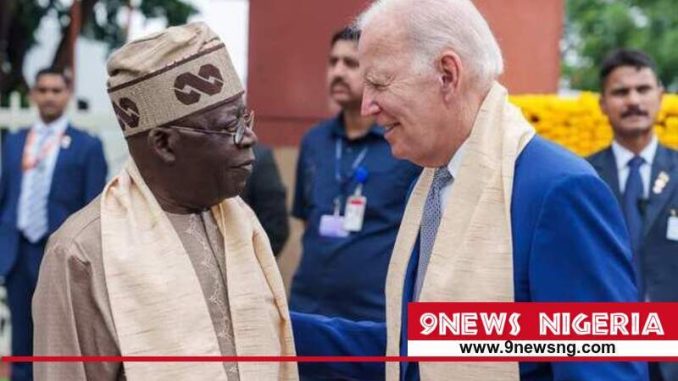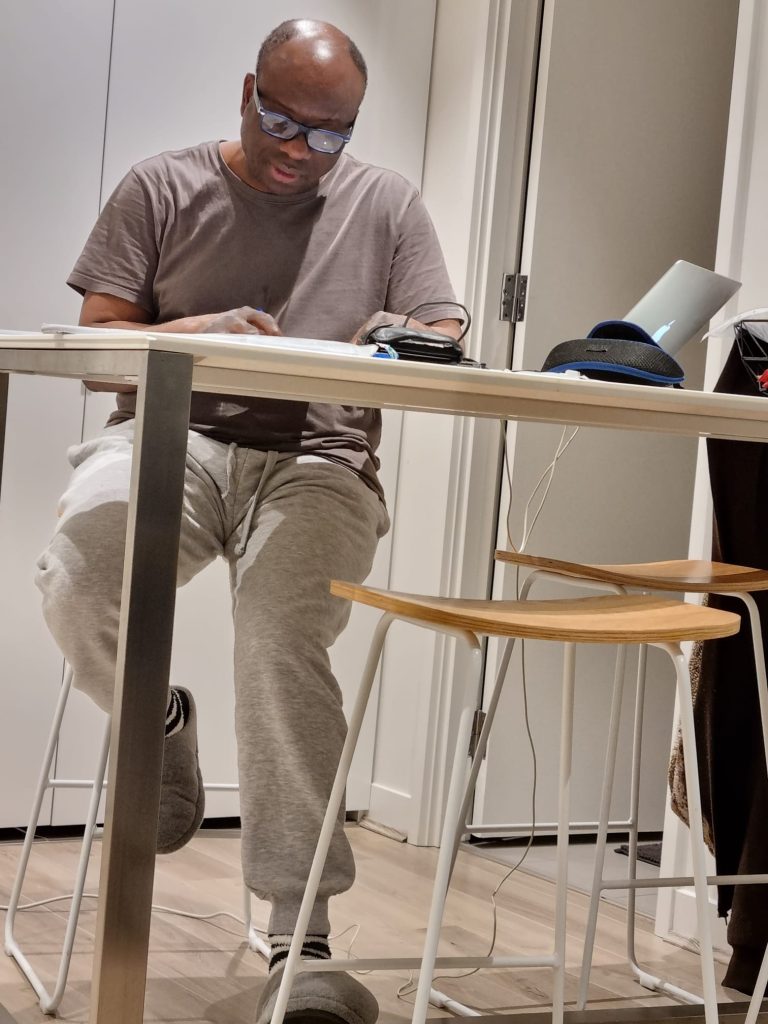
By Obinna Ejianya (9News Nigeria – Melbourne, Australia)
The US President, Joe Biden, has finally announced his resignation from the ongoing presidential race against former president Donald Trump.
In a surprising, unprecedented and unparalleled move, Joe Biden announced that he will not be seeking re-election in 2024, instead endorsing his Vice President Kamala Harris as the Democratic Party’s nominee. This decision comes after weeks of growing pressure from within his own party for the 81-year-old Biden to step aside, amid concerns over his age and fitness to take on former President Donald Trump in what is shaping up to be a bruising campaign.
The announcement was released on his official social media timelines, stating that the president has decided not to accept the nomination and to focus all his energies on his duties as President for the remainder of his term.
He said: “My fellow Democrats, I have decided not to accept the nomination and to focus all my energies on my duties as President for the remainder of my term. My very first decision as the party nominee in 2020 was to pick Kamala Harris as my Vice President. And it’s been the best decision I’ve made. Today, I want to offer my full support and endorsement for Kamala to be the nominee of our party this year. Democrats — it’s time to come together and beat Trump. Let’s do this. If you’re with us, donate to her campaign here:”
This is a significant lesson for African leaders who, despite their inability to function mentally and physically, always insist on being at the helm of affairs in their countries, thereby leaving the affairs of the country they are leading in a state of coma, with little to no progress.
Biden’s announcement is a stark contrast to the behavior of many African leaders, who would rather cling to power well into their old age, despite clear signs of declining mental and physical capacities. The lesson from Biden’s decision is one that African leaders would do well to heed, as they grapple with the adverse effects that long-serving, aging rulers have had on the continent.
The case of Nigeria is particularly illustrative. Despite the advanced age and evident health issues of both then outgoing President Muhammadu Buhari and his successor, Bola Tinubu, the latter was still able to secure the presidency in the 2023 election. Tinubu, who is believed to be in his 70s but has obfuscated his true age, has been dogged by rumors of dementia and other age-related ailments. Yet, his party, the All Progressives Congress (APC), and his supporters, pushed forward with his candidacy, prioritizing their own political interests over the well-being of the Nigerian people.
Despite Buhari’s old age and mental incapacitation, he was still brought to power, and Nigerians bought the idea that an old and incapacitated person could rule them competently. This was the genesis of the retrogression and regression Nigeria faced until today. To make matters worse, Tinubu came as the presidential flag-bearer in the 2023 presidential election. He was obviously seen to be physically and mentally unfit to rule the country, citing his real age and some demonstrations that showed that he was not physically and cognitively fit to be at the helm of affairs in Nigeria’s governance. People talked and talked, but he, his cronies, and those who supported him did everything to ensure that he came into power and is now ruling Nigeria. The consequence is now unbearable to everyone, including those who campaigned and foisted him into power. During campaigns, they saw that his speeches were slurred and sometimes out of point due to possible dementia or some old-age symptoms, yet they insisted on continuing in the race and taking over Nigeria’s presidency. Suffice it to say that, indeed, if Bola Tinubu is young and vibrant, he would have performed very well as a good leader, but there is a saying that ‘You can’t cheat old age.’
African countries have often struggled to establish robust democratic frameworks that can withstand the authoritarian tendencies of long-serving rulers. The result has been a continent plagued by political instability, violence, and the erosion of the rule of law, as leaders cling to power and resist calls for change.
This is a pattern that has played out across Africa, where leaders such as Equatorial Guinea’s Teodoro Obiang Nguema Mbasogo, who has been in power since 1979, and Paul Biya of Cameroon, who has ruled since 1982, have clung to power well into their 80s and 90s. These leaders, often propped up by compliant security forces and a network of loyal cronies, have presided over stagnation, corruption, and the erosion of democratic institutions in their respective countries.
The consequences of this phenomenon have been dire for the African continent. With aging, often incapacitated leaders at the helm, decision-making has become increasingly centralized, with family members and close associates wielding outsized influence. This has led to the prioritization of personal and factional interests over the broader public good, resulting in the misallocation of resources, the suppression of dissent, and the perpetuation of poverty and underdevelopment.
Moreover, the reluctance of African leaders to relinquish power has stifled the emergence of new, dynamic leaders who could potentially drive much-needed reforms and revitalize their countries. The lack of generational turnover has also contributed to a brain drain, as talented young Africans seek opportunities elsewhere, further hampering the continent’s development.
Because they are old and unable to make decisions independently, and unable to critically assess pressing issues and make informed decisions, they will leave the decision-making in the hands of family members, cronies, and ‘cabals’ who are the ones ruling the country in proxy and through a shadow, diminishing the pressure and demand for accountability and responsibility. The incapacitated leaders resort to nepotism to ensure that they maintain their stay in power, and these proxy policymakers, knowing that they are not visibly in power and cannot be held responsible for any wrong direction the country is moving, will take decisions that only favor themselves and leave the country in ruin and the citizens in peril.
In contrast, Biden’s decision to step aside, despite his party’s urging him to run, stands as a testament to the importance of putting country before personal ambition. By acknowledging the concerns over his age and fitness, and prioritizing the best interests of the United States, Biden has demonstrated a level of selflessness and foresight that is sorely lacking among many African leaders.
Even Biden’s own party members, including former President Obama, pressured him to step down as the Democratic candidate for the 2024 election. By accepting this, Biden has made a wise decision that prioritizes the country’s and people’s interests.
Biden example has shown that even the most powerful leaders can make the difficult decision to step aside for the greater good. It is a lesson that African leaders would do well to heed, as they grapple with the consequences of their own reluctance to relinquish power. Only by embracing this spirit of selflessness and putting country before self can African nations truly unlock their vast potential and chart a course towards a more prosperous and equitable future.
The lesson for African leaders is clear: the time has come to prioritize the well-being of their citizens over their own personal interests. By embracing term limits, respecting the will of the people, and facilitating the peaceful transfer of power, African leaders can pave the way for a new generation of leaders who can tackle the continent’s pressing challenges with vigor, innovation, and a genuine commitment to progress.
African leaders and citizens, especially in Nigeria, should learn from this example. They must resist the temptation to place unfit, physically and mentally incapacitated individuals at the helm of power, as this only serves to undermine progress and prosperity. The well-being of the nation and its citizens should be the primary consideration in selecting leaders, not the personal interests of the ruling elite.
By Obinna Ejianya (9News Nigeria – Melbourne, Australia)

